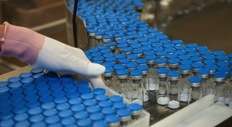- Takeda will invest over €100M in a new dengue vaccine plant in Singen, Germany.
- Construction starts immediately, with production expected by 2019.
- The TIDES study is enrolling 20,000 children in dengue-endemic regions.
- The study evaluates the efficacy and safety of Takeda's tetravalent dengue vaccine.

Investment in Dengue Vaccine Plant
Takeda Pharmaceuticals will invest over €100 million to build a new manufacturing plant for its dengue vaccine candidate in Singen, Germany. This initiative aims to address the significant unmet need in dengue prevention, as dengue is the fastest spreading mosquito-borne viral disease, affecting 40% of the global population.
Construction and Production Timeline
Initial construction activities for the new plant will commence immediately, with the facility expected to be ready for production by 2019. The Singen team’s expertise in lyophilisation technology will be crucial for the manufacturing process of the dengue vaccine.
TIDES Clinical Study
On September 7, 2016, Takeda began the Tetravalent Immunization against Dengue Efficacy Study (TIDES), enrolling approximately 20,000 healthy children aged 4 to 16 years from dengue-endemic countries in Latin America and Asia. This Phase 3 double-blind, randomized, placebo-controlled trial aims to evaluate the efficacy of Takeda’s live-attenuated tetravalent dengue vaccine candidate in preventing symptomatic dengue fever caused by any of the four dengue virus serotypes.
Study Objectives
The TIDES study also assesses the safety and immunogenicity of the vaccine, with two doses administered 90 days apart. The goal is to determine the vaccine's effectiveness regardless of the age of the participants or their previous exposure to the virus.

